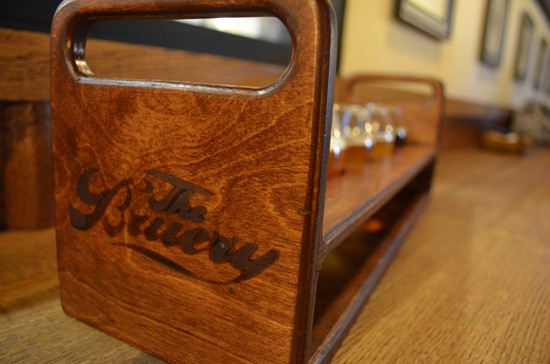
You guys already know about old beer, but a refresher: Kegs aren't immortality chambers, beer expires, and air is bad. But today I'm going to tell you that beers can be ruined before they even see the light of day. Yes, there are steps in the brewing process that can easily turn a beautiful brew into soured swill before you even take a sip.
I'm talking about bacterial infections.
]
Now, not all bacterial “infections” are bad. Wild yeasts and bacteria are used to brew sour ales, some of the most difficult beers to brew due to the unpredictability of the yeasts and long aging times.
But when wild fermentation, infections via barrel aging, and too much human contact is unintentional; it can leave beer vulnerable to unwanted and active bacteria. When this happens, the beer typically turns sour and may even develop a butterscotch flavor.
It is more common than you may think: You've probably had an infected beer and didn't even know it.
Now, common infections in beer aren't as detrimental or hazardous to your health as they may sound. Just because an outside agent has contaminated the beer does not always mean the drink is undrinkable. Honestly, sometimes it may be an improvement. But most breweries do not make a habit of advertising a mistake with their beer because, well, they want it to sell, and the word “infection” does not carry the most positive of connotations.
That's kind of shady.
But Orange County has one upstanding brewery that is as transparent as can be when it comes to their beer and its many infections: The Bruery.
Those unfamiliar with the brewing establishment in Placentia should be pleased to hear that these guys admit when something goes awry. One of their latest beers to debut, Couverteur, a chocolate dubbel, had to be taken off the shipment list due to infection.
And it's not just that they send emails to their Preservation and Hoarder's Society members with their apologies, they went as far to post a full-scale apology on the Internet.
If you're wondering why this problem keeps popping up at this particular brewery, the answer is open fermentation. The risk of infection triples when a brewer decides to (literally) throw caution to the wind and allow for uncontrolled fermentation. The boys at The Bruery are quite fond of this method and understand the unpredictability of it all; that's half the fun.
As previously stated, the beer can turn a bit sour and that's not always cause for a drain-pour. Yes, Couverteur would be undesirable if soured, but that's not always the case with other beers. Sometimes a little extra tart punch isn't so bad.
But, regardless, The Bruery upholds a standard that few breweries in the craft beer world seem to consider. This is proof that even a dirty word like “infection” cannot hold back the success of an establishment that deserves it.
Follow Stick a Fork In It on Twitter @ocweeklyfood or on Facebook! And don't forget to download our free Best Of App here!
You can also follow Cleo Tobbi on Twitter @CleoTobbi.

